“The last straw” are exactly the words Kharkiv journalist Yuliya Boiko says about her coming under fire. It was after this situation that she decided to take a break from her profession and focus on writing her master’s thesis.
“I had a concussion and severe panic attacks. But even this is not the main reason. This, one might say, was the last straw. During these two years, given that I live in Kharkiv, where shelling is daily, so much pain has been passed through me that it becomes very difficult,” says Yuliya.
“I just fell under the curb. And at that moment, there was an explosion”
At the time of the beginning of the full-scale invasion, the Live TV channel Yuliya Boiko worked for, stopped its operation. The journalist continued to work for foreign TV channels; in particular, she was a freelancer for the Belsat TV channel, helping colleagues from the capital TV channel. Then she returned to the News.Live.
The shelling happened near her house at night when Yuliya was working on a news channel.
“About 12 o’clock in the morning, I finished my work and went to bed. First, one Shahed drone flew a few houses away from us; then the second got into a three-story residential building nearby. About half an hour later, we checked at home whether everything was intact. Fortunately, the window was not broken. When I realized that everything was fine at home, I went to work at the scene. About ten minutes later, people started shouting that another attack was coming. As I remember now, I went out onto the road – to a big intersection, and then something stopped me. I returned to the house near which it hit, and I fell just under the curb. It was at this moment that the explosion happened. Then, that night, three rescuers died at that intersection because Shahed got into the car of the State Emergency Service. I understand: if I had walked a little closer to this car, maybe we wouldn’t be talking now. For me, it was probably the hardest and shortest shooting,” the journalist recalls.
She also added that the hardest part is that the shooting happened near her home, and she has to pass that place every day.
Another colleague, Viktor Pichuhin, a journalist of the Nakypilo publication, was injured that night.
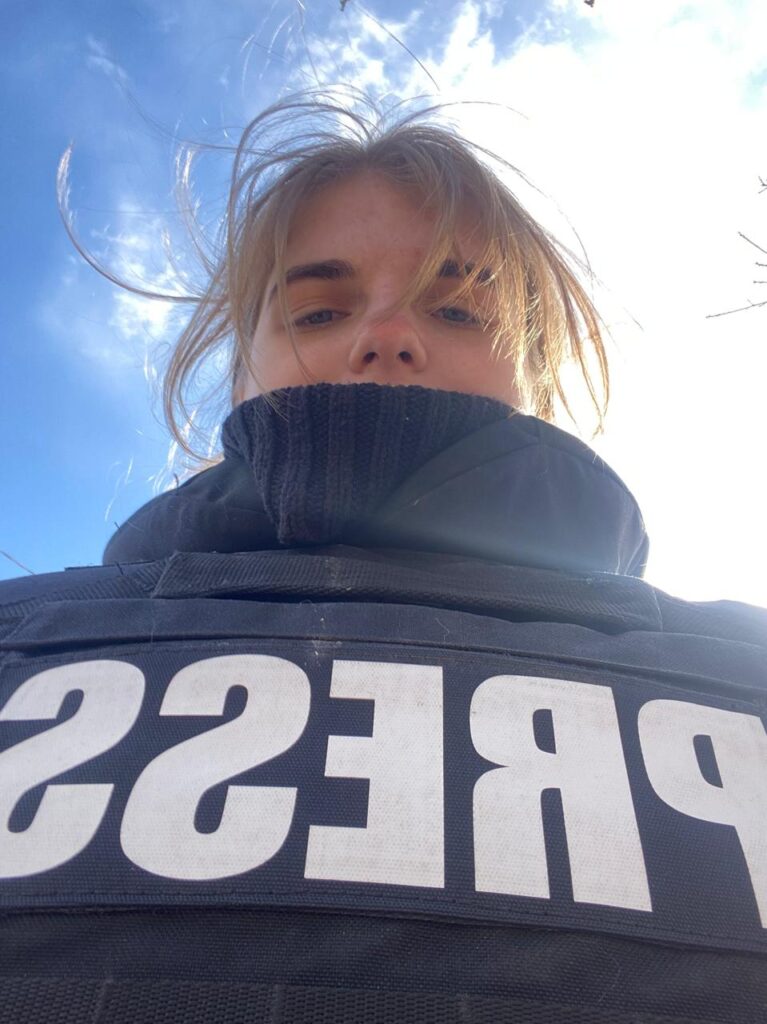
“Journalists in Kharkiv can come under fire not only at work but also at home. For these almost three years, there has not been a month without something flying over Kharkiv, and there is no such area where rockets do not reach,” says Yuliya Boiko.
She says that his relatives offered to leave at least temporarily to a safer place; in particular, his sister called him to Germany.
“I remember these panic attacks. When a message about shelling appears on the monitoring channels, and I, for example, go in a taxi, I simply stop the taxi because I need to hide somewhere. It’s psychologically so difficult. But I made the decision that I would not leave Kharkiv at the beginning of the full-scale invasion. I will not leave the city. The only reason why I could go is the occupation, but we believe that this will not happen,” says the journalist.
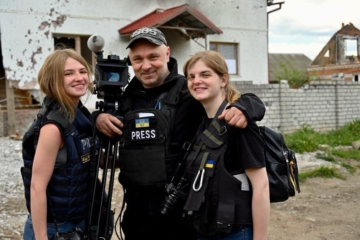
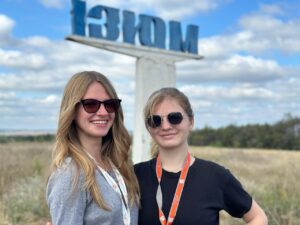
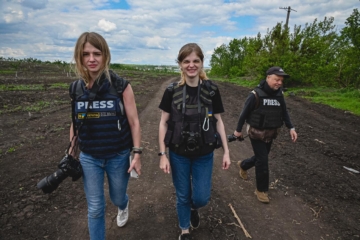
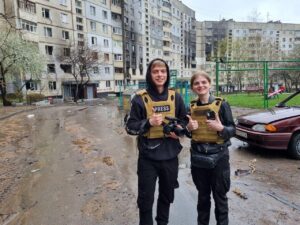
“Now we need to think more about the people we work with”
“I have never worn heels in these two years,” Yuliya smiles when asked how the war affected her life and professional activities. “Now, if you are going to shoot, you must have a bulletproof vest and a helmet.”
Yuliya notes that she doesn’t like it when Kharkiv media people are called warlords or military journalists. After all, the work has not changed; the main task is to inform:
“It is a little more difficult to work from a moral point of view because, as in any profession where you work with people, the main thing is to do no harm. And every time you communicate with someone, you don’t always know whether you will harm the person with one question or another. Now, we need to choose our words more thoroughly and think more about the people we work with.”
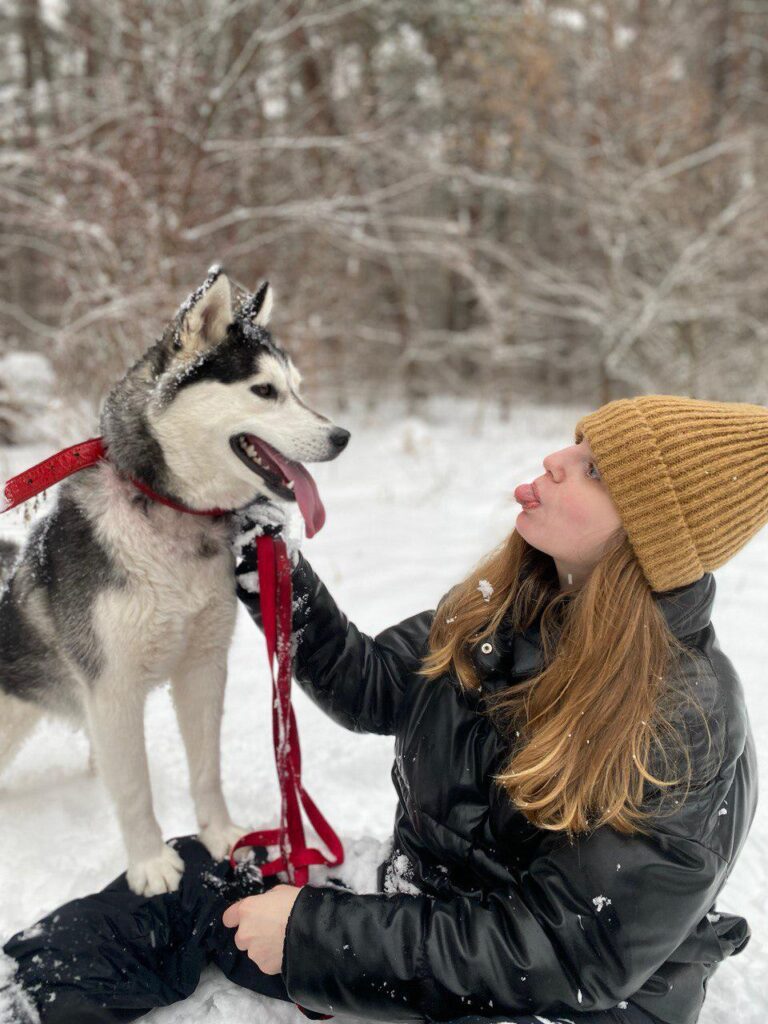
“Loyal to their profession”
Despite the fact that Yuliya has now taken a temporary break from her journalistic work, she continues to communicate with her colleagues, sometimes appears on the air, and helps to find heroes. But she plans to return to work soon because she is convinced that journalism is a lifestyle that she is missing now.
The biggest support for her today is her family. The support of relatives is exactly what helped to get out of a difficult situation. And also pets.
“We already have four “immigrant” cats from Balakliya, and at the beginning of the full-scale invasion, I took home a dog. They are very supportive because you don’t have time to sit and “suffer,” you switch to taking care of them.”
Support was also provided by friends and colleagues who arrived on the first day after the shelling, shot the scene, and helped.
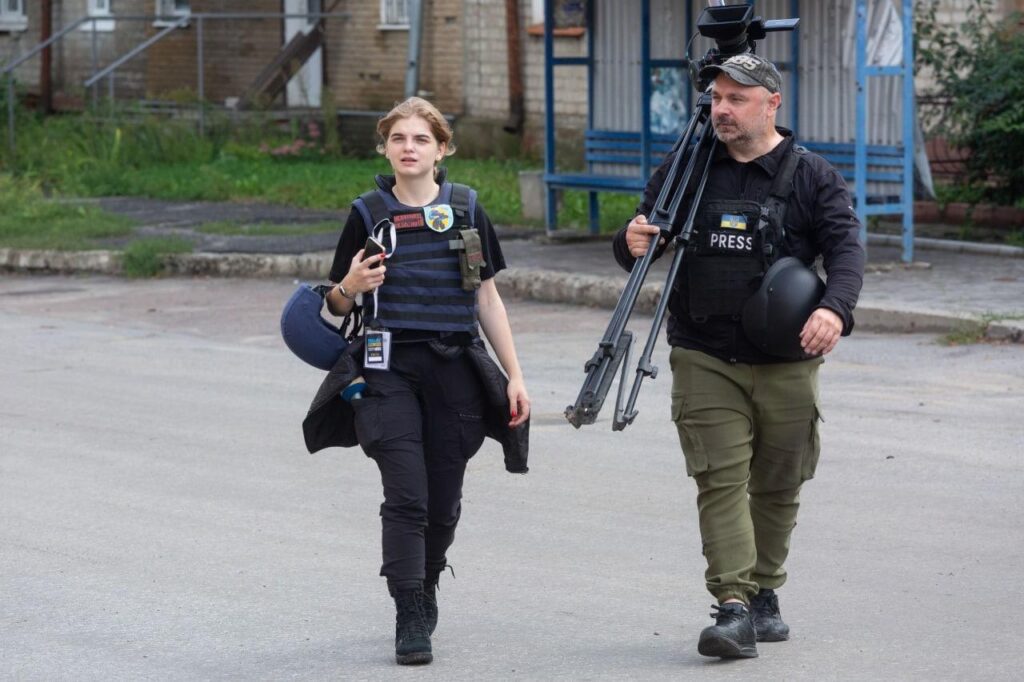
“Probably, it would not be entirely correct to say that journalists in Kharkiv are fearless. We have all fearless people who remain in Ukraine. Rather, we are loyal to our profession. Our job was and is to inform about what is happening around. And we continue to do so despite the danger. Because this is our duty, which we took upon ourselves when we entered this profession,” says Yuliya Boiko.
“JOURNALISTS ARE IMPORTANT. Stories of life and work in war conditions” is a series of materials prepared by the team of the National Union of Journalists of Ukraine with the support of the Swedish human rights organization Civil Rights Defenders.

 THE NATIONAL UNION OF
JOURNALISTS OF UKRAINE
THE NATIONAL UNION OF
JOURNALISTS OF UKRAINE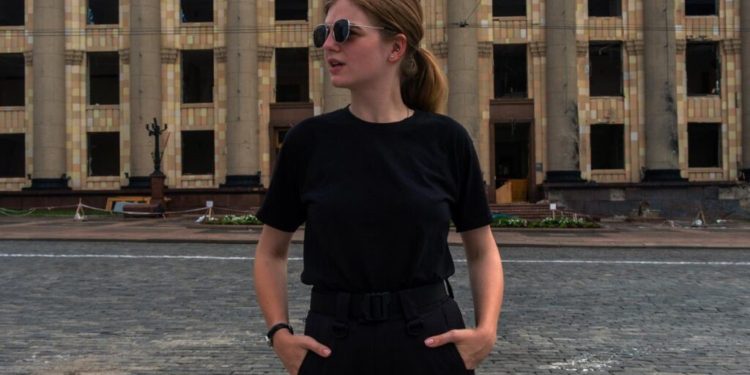
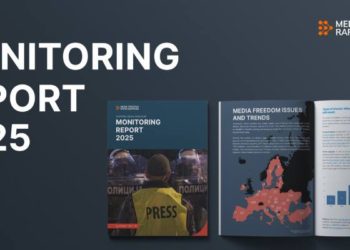
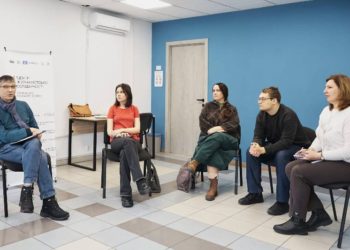
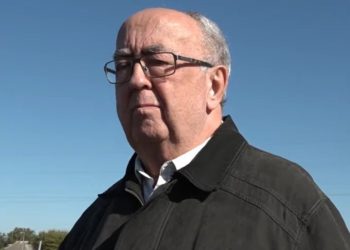













Discussion about this post